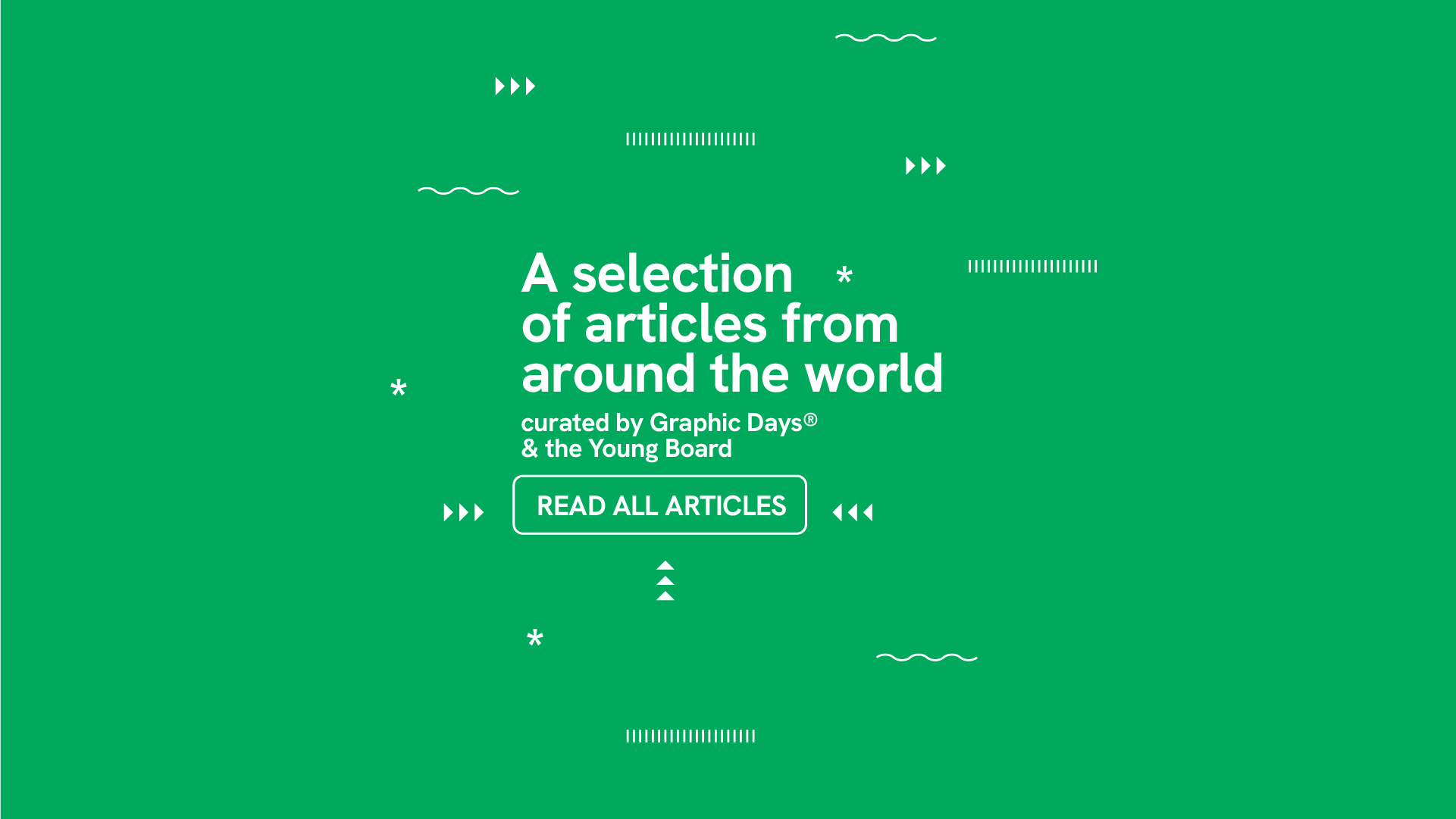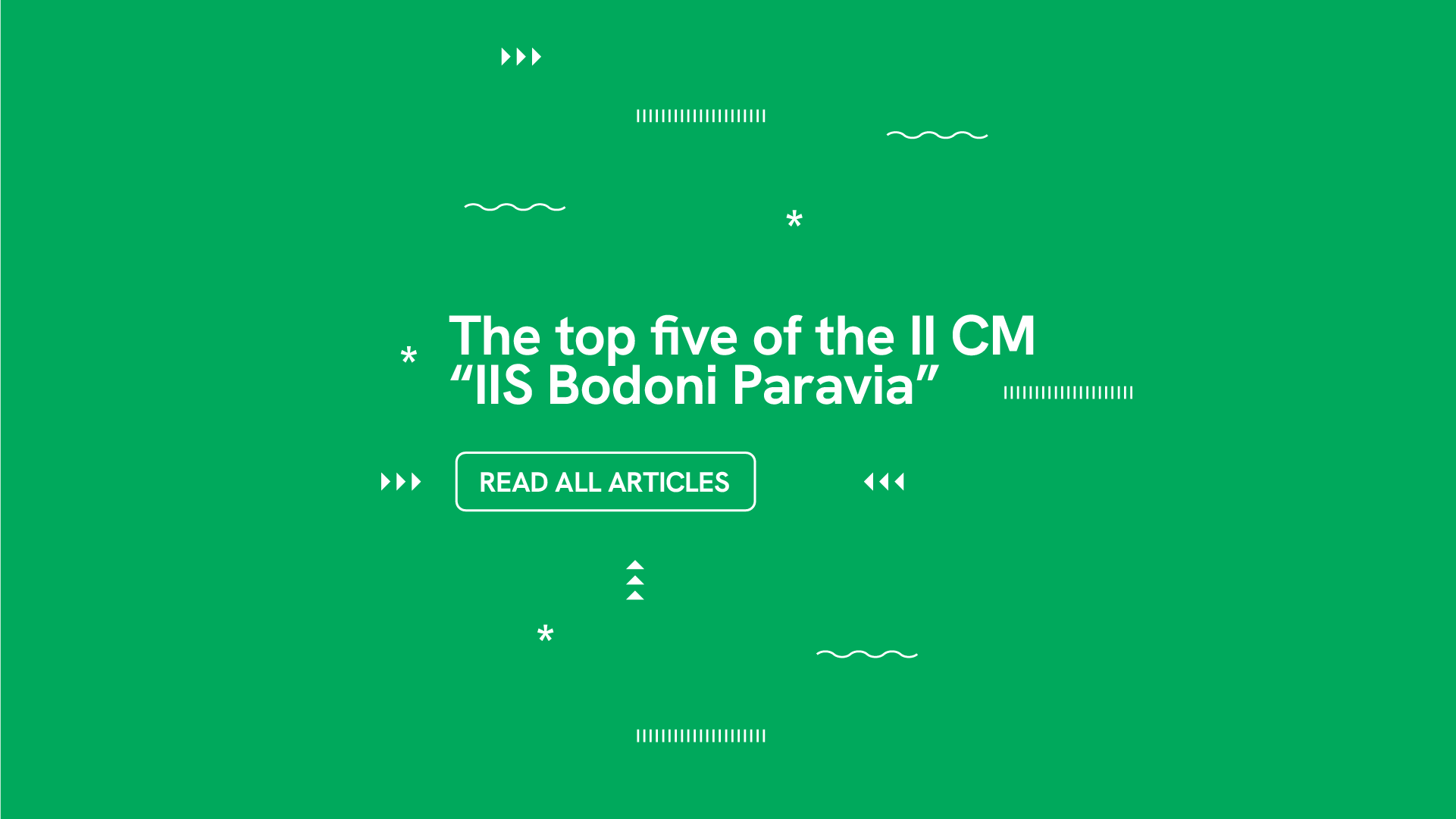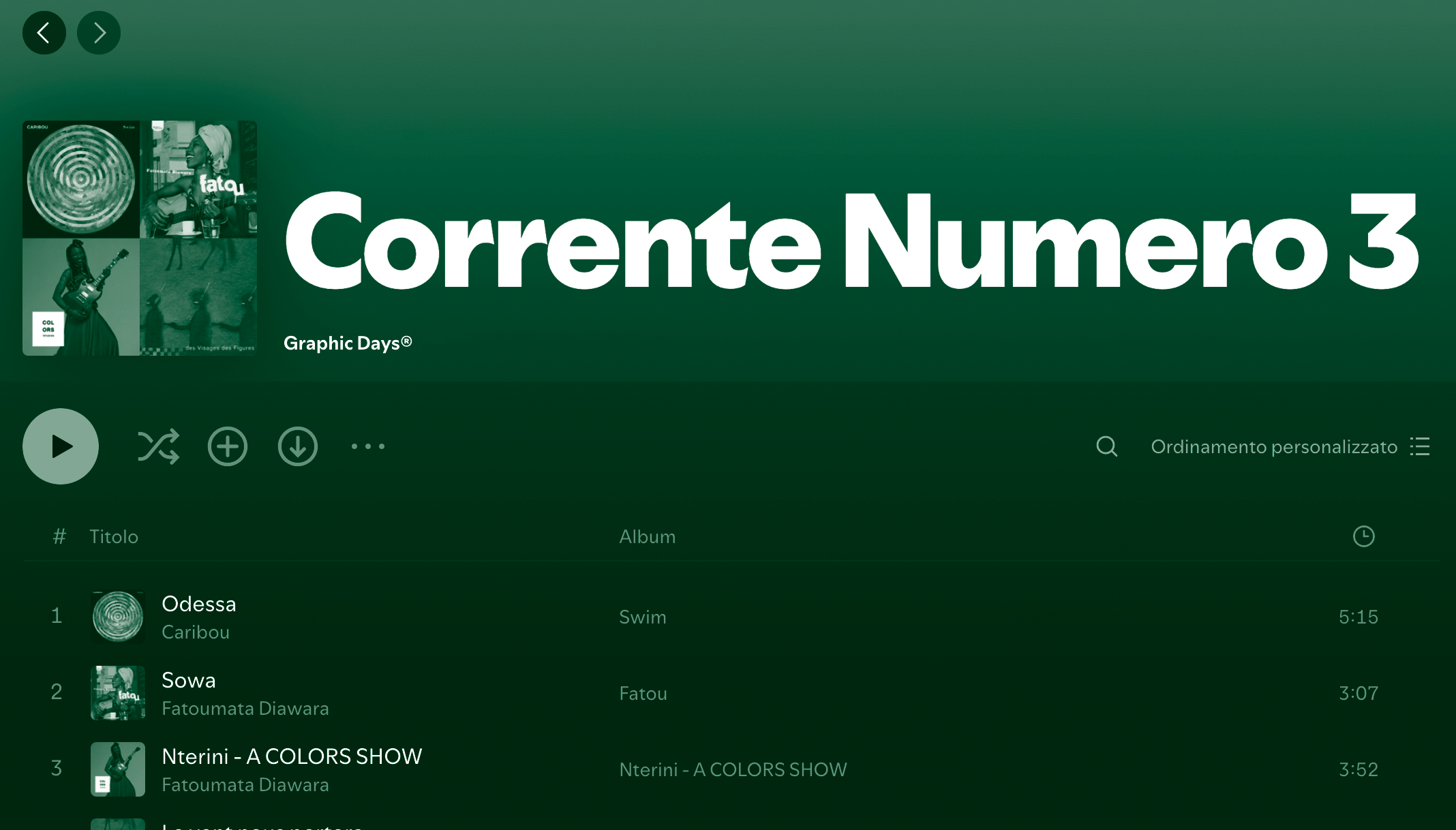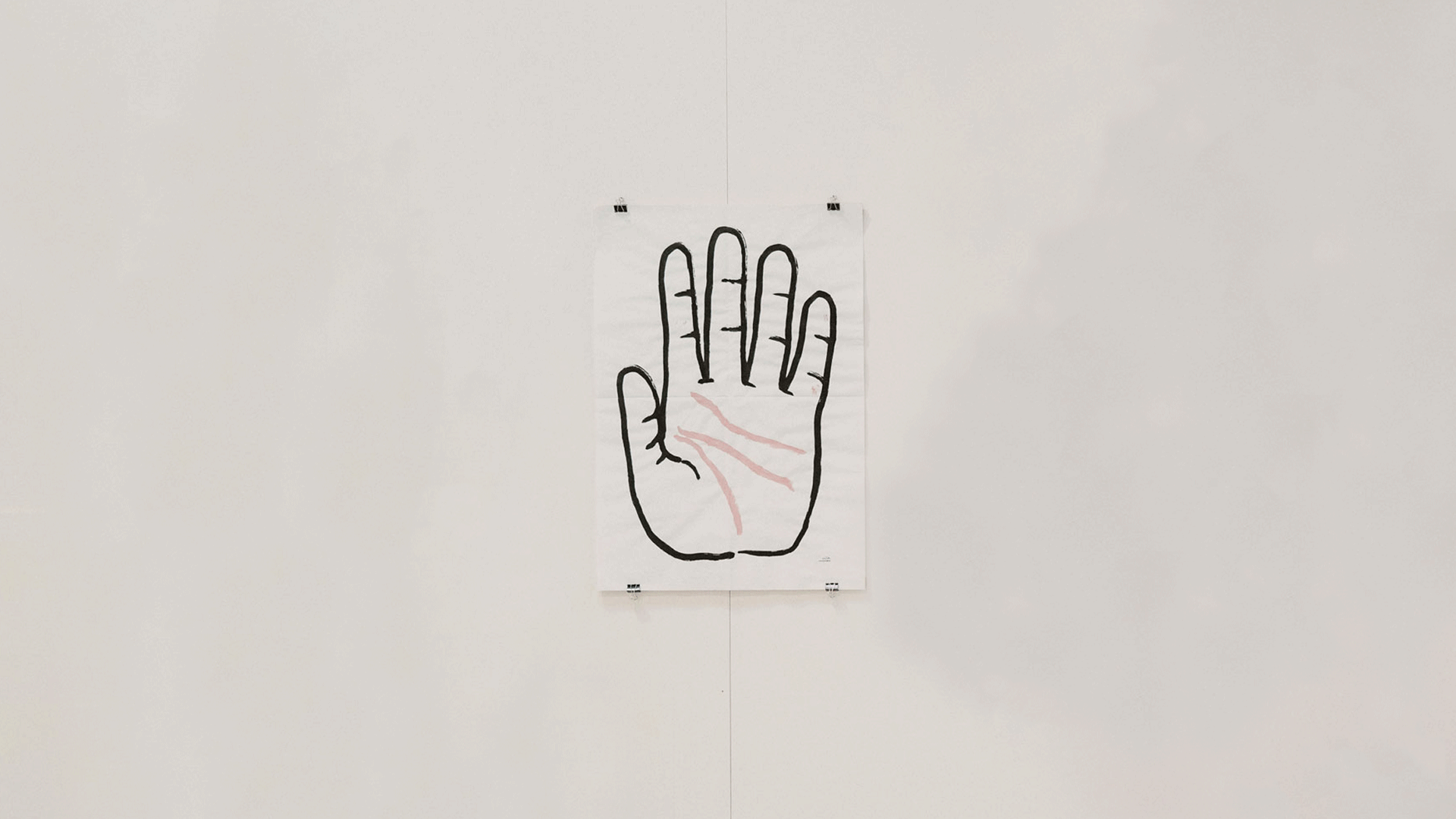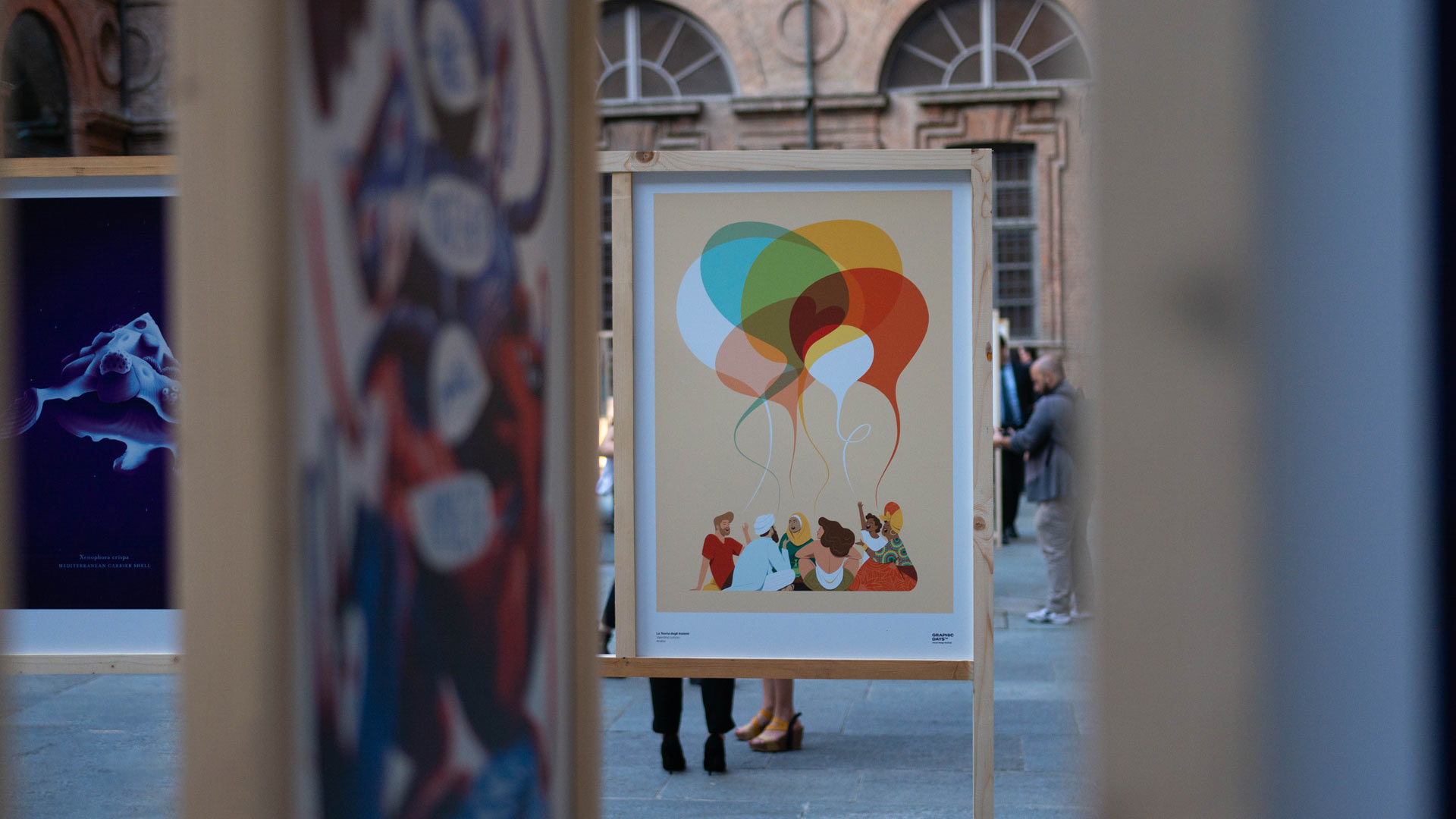The third issue of the fanzine Corrente focuses on the phenomenon of migration: a collection of best practices and positive experiences of inclusion with the aim of offering a narrative that is not dramatic or victim-blaming, emphasizing the opportunities of confrontation between different populations and cultures.
MELTING POT EUROPE: A PROJECT TO GIVE VOICE AND INFORM
How was Melting Pot Europe born?
Melting Pot was born looking out the window, knowing the working-class neighborhoods and the social transformations taking place, the emergence of a new labor composition that first of all demanded to be recognized and to have rights. In concrete terms, it began its activities as a legal radio desk translated into 5 languages and broadcast weekly on FM.
The broadcast also had a phone number, interested people could ask a question, and the next time the lawyer answered and the answer was translated into different languages. In addition to this, a part of the broadcast was devoted to current news and analysis.
The first evolution occurred in 2003 with the birth of the web platform that accompanies the broadcast: the demand for information for changes to the Consolidated Immigration Act following the Bossi-Fini Law and the first security packages was increasing, as was the need to propose in the public debate a different narrative, alternative to that of mainstream and institutional politics. The rise of parties that stoked fear of “immigrant invasions” was already underway, only then the nationalities to be defended against were Albanian and Romanian. From Albania, today the government asks, for a hefty fee, to take place the non-European migrants who would like to reach Italy; Romanian nationals, on the other hand, have become communitarian and have won the right to mobility in Europe without invading us and becoming a security threat.
With the website, other projects have developed, such as legal guidance desks, publications, collaborations with others, and social and political campaigns.
What are the main challenges in the field of integration?
Rather than “integration,” we would prefer to talk about the protection of fundamental rights as the primary means of fostering full social inclusion.
The challenges we face are many, starting with information, which is an important part of how phenomena are told and thus perceived. For us, this is a primary battleground, and so we would like to continue to ensure that information is complete and up-to-date, not biased or victim-blaming.
On December 13, 2021, we put the new website online, which has maintained a structure in two main sections, “Citizenships” and “Sans-Papiers.” We try to combine information, in-depth and journalistic reports with training and updating tools for lawyers, practitioners, and people with migration backgrounds.
We also think it is necessary to know how to listen and, at the same time, to give more and more voice and space to people who are protagonists of migration and racialized, while also valuing the many experiences of solidarity, anti-racism and support for people on the move that have arisen in recent years.
Only from this set of social composition can change arise that can undermine the pillars of a now structural racism and produce a beneficial domino effect to broaden the sphere of rights. This is the main challenge; everything else runs parallel: will Italian (and European) society be willing to question its privileges in order to provide opportunities for social inclusion?
Melting Pot Europa
a publishing and social communication project that chronicles and analyzes the processes of transformation of the migration phenomenon in Italy and Europe. It was born in 1996 in vicolo Pontecorvo in Padua, in the premises of Radio Sherwood, an independent radio station founded in 1976, in a very important period for free radio stations.
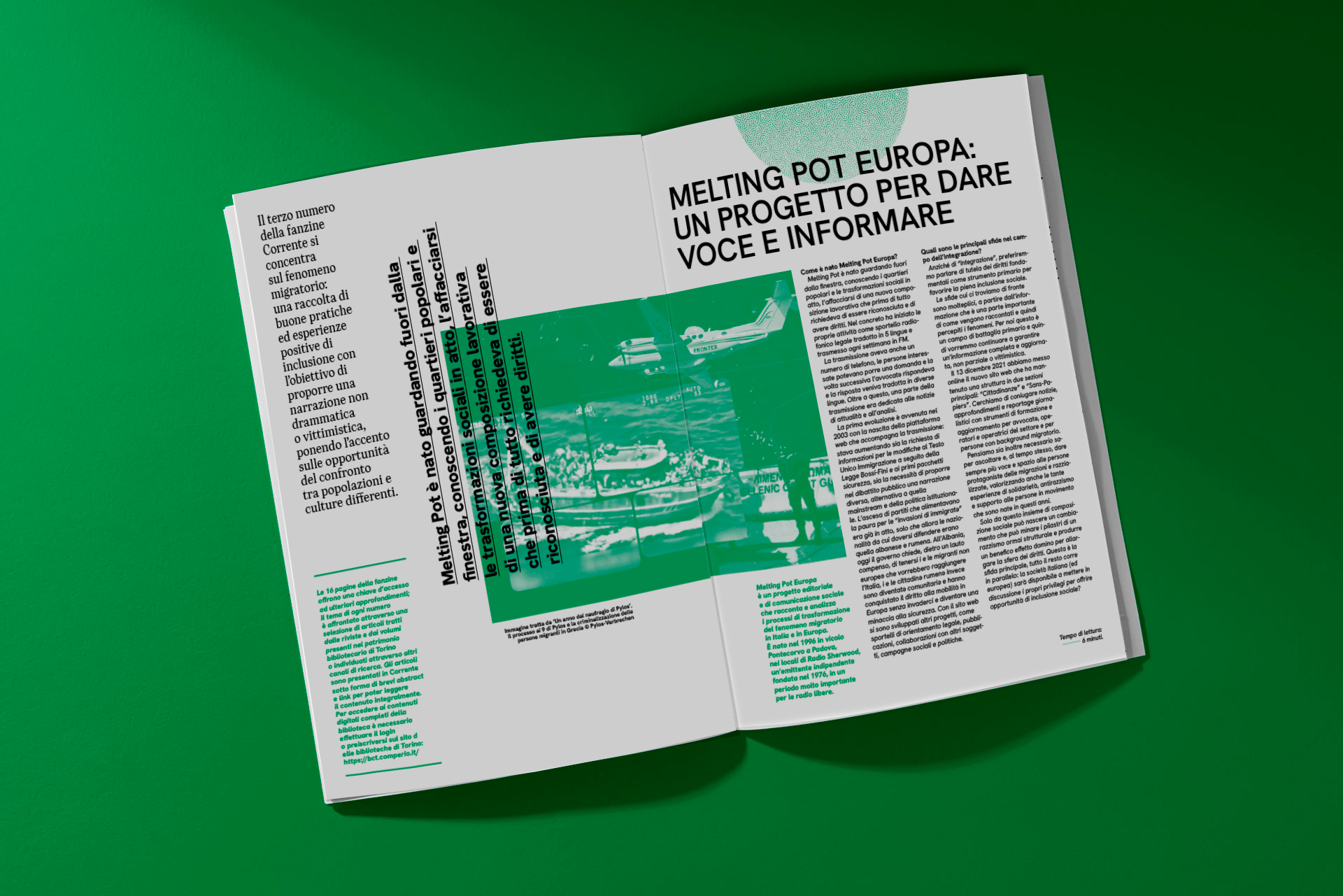
The immigration phenomenon is a global issue, a consequence of economic and political dynamics, and is often connected to organized crime, as denounced by Save the Children, which promotes a project of protection and job placement for victims. In addition to these aspects, there is the issue of climate change, which affects migration flows and may soon involve countries that so far have not been affected.
Ensuring a more globally equitable economy on the one hand and recognizing the value of mobility as an antidote to the demographic deficit on the other are key actions to promote inclusion. The initiatives carried out by the collective The Cuttlefish Revolution and the many positive experiences of inclusion using, for example, cooking, tailoring and music as vehicles for dialogue and breaking down barriers between different cultures fit perfectly into this picture.
The filter of media communication, however, often tends to foster the spread of prejudices, as the A “Type” of Refugees campaign points out; precisely with the aim of stimulating an alternative narrative than the dominant one of the migration phenomenon, the DIMMI project dedicated to first-person accounts and diaries of migrant people was born.
After the humanitarian corridors, labor corridors are born: training paths that will allow on an experimental basis the arrival of 300 non-EU people who meet the professional demands of the business and social-health world. Although there is widespread awareness of the importance of immigratə labor in some productive sectors, yet most of the Italian population believes that the arrival of altrə stranierə would entail more risks than benefits.
The emergence of second generations is a positive symptom of integration by those who choose to build a life in the host country, but the path to citizenship acquisition is not immediate: the naturalization rate in Italy stands at just under 3 percent.
Among the many initiatives to promote integration, we highlight in particular two recent experiences: a bar has reopened in Sicily that promotes integration through the contamination of culinary traditions, and in Verona the first reception center dedicated to migrants of any sexual orientation was born.
The proposed selection is the outcome of editorial workshops carried out with the 2CM class of IIS Bodoni Paravia in Turin, following research that each allievə carried out independently and within the Alberto Geisser library.
Participants in the project included:
Aya Bazzari, Mattia Bellardi, Aurora Cabula, Michelle Carioggia, Emilia Cedola, Alessandro Derosa, Sofia Galizia, Alexis Ghidini, Hakim Ibrahim, Diego Ingino, Haytam Kroumi, Maria Lucaci, Erica Nocilla, Gabriele Piro, Matteo Piserchia.
Teachers:
Rosalba Acelli, Elena Barattero, Giulia De Matteo, Vittorio Paragallo
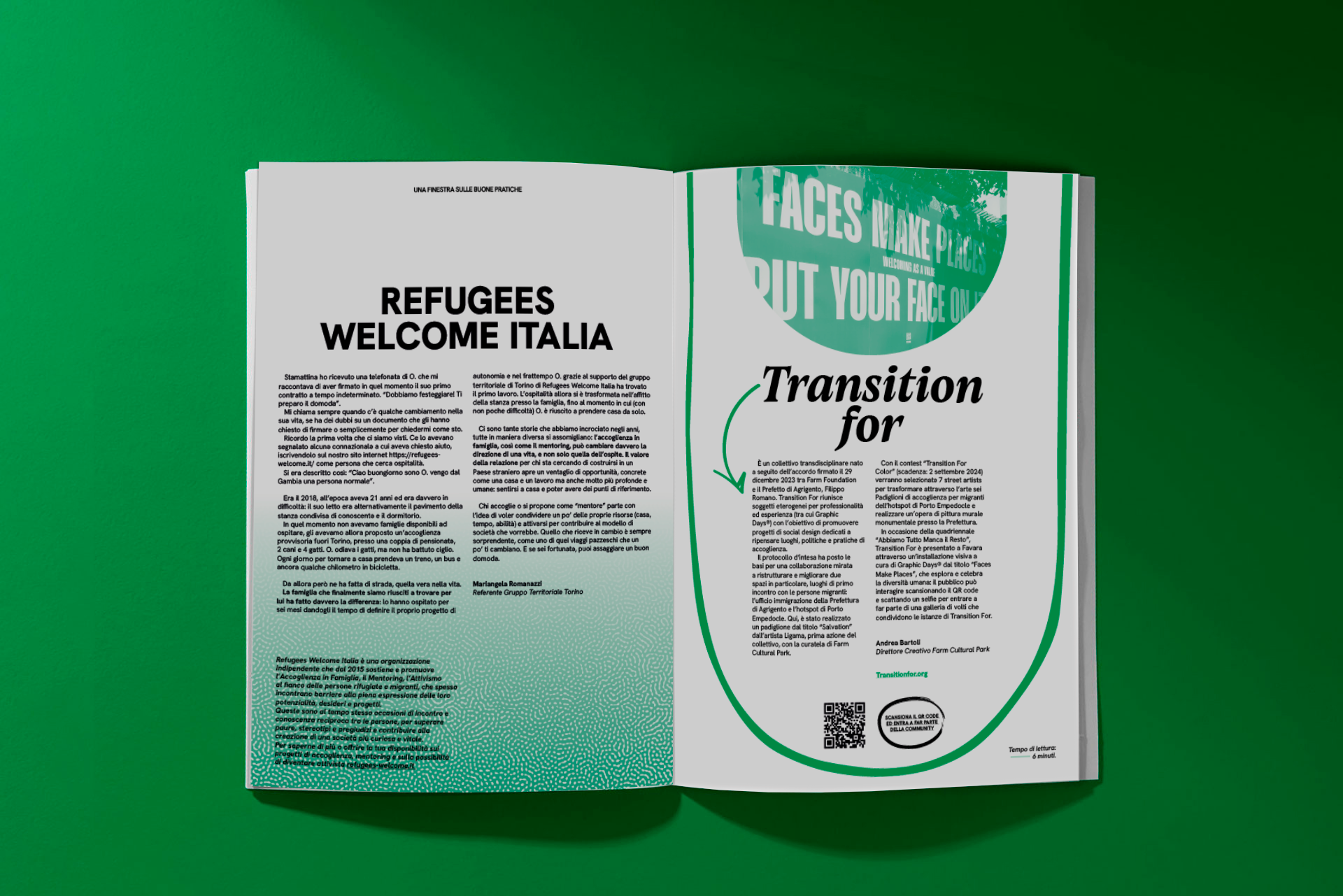
Refugees welcome Italia
This morning I received a phone call from O. telling me that he had just then signed his first permanent contract. “We have to celebrate! I’ll make you domoda.”
He always calls me when there is some change in his life, if he has doubts about a document he was asked to sign, or just to ask how I am doing.
I remember the first time we saw each other. We had been referred to him by someə compatriotsə whom he had asked for help, registering him on our website https://refugees-welcome.it/ as a person seeking hospitality.
He had described himself like this, “Hello good morning I am O. I am from Gambia a normal person.”
It was 2018, he was 21 years old at the time and was really struggling: his bed was alternately the floor of the shared room of conoscentə and the dormitory.
At that time we had no families available to take him in, so we proposed him temporary shelter outside Turin, with a retired couple, 2 dogs and 4 cats. O. hated cats, but he didn’t bat an eye. Every day to go home he took a train, a bus and a few more miles by bicycle.
Since then, however, he has come a long way, the real way in life.
The family we finally managed to find for him really made a difference: they hosted him for six months giving him time to define his own autonomy project and in the meantime O. thanks to the support of the Turin territorial group of Refugees Welcome Italia found his first job. Hospitality then turned into renting a room with the family, until (with not a few difficulties) O. was able to take a house on his own.
There are so many stories that we have crossed over the years, all of which in different ways resemble each other: family hosting, as well as mentoring, can really change the direction of a life, and not just that of the host. The value of the relationship for those who are trying to build themselves up in a foreign country opens up a range of opportunities, as concrete as a home and a job but also much deeper and more human: feeling at home and being able to have points of reference.
Those who welcome or offer themselves as “mentors” leave with the idea that they want to share some of their resources (home, time, skills) and take action to contribute to the model of society they would like. What he gets in return is always surprising, like one of those crazy trips that change you a bit. And if you are luckyə, you get to taste a good domoda.
Mariangela Romanazzi
Turin Territorial Group Contact Person
Bio
Refugees Welcome Italia is an independent organization that since 2015 has supported and promoted Family Welcoming, Mentoring, and Activism alongside refugee and migrant people, who often encounter barriers to the full expression of their potential, desires, and projects. These are both opportunities for people to meet and get to know each other, to overcome fears, stereotypes, and prejudices, and to contribute to the creation of a more curious and vibrant society.
To learn more or to offer your availability about hosting, mentoring and becoming an activist projects refugees-welcome.it
torino@refugees-welcome.it
Transition For.
It is a transdisciplinary collective created following the agreement signed on December 29, 2023 between Farm Foundation and the Prefect of Agrigento, Filippo Romano. Transition For brings together subjects heterogeneous in terms of professionalism and experience (including Graphic Days®) with the aim of promoting social design projects dedicated to rethinking places, policies and practices of reception.
The memorandum of understanding laid the foundations for a collaboration aimed at renovating and improving two spaces in particular, places of first encounter with migrant people: the immigration office of the Prefecture of Agrigento and the hotspot of Porto Empedocle. Here, a pavilion entitled “Salvation” was created by artist Ligama, the collective’s first action, under the curatorship of Farm Cultural Park.
Through the “Transition For Color” contest (deadline: September 2, 2024), seven street artists will be selected to transform through art six migrant reception pavilions at the Porto Empedocle hotspot and create a monumental mural painting at the Prefecture.
On the occasion of the quadrennial “We Have Everything Lacks the Rest,” Transition For is presented in Favara through a visual installation curated by Graphic Days® entitled “Faces Make Places,” which explores and celebrates human diversity: the public can interact by scanning the QR code and taking a selfie to become part of a gallery of faces that share the instances of Transition For.
Andrea Bartoli
Farm Cultural Park Creative Director
Books
Nel mare ci sono i coccodrilli by Fabio Geda, Baldini&Castoldi, 2010
L’integrazione subita by David Nelken, Franco Angeli, 2005. Available at the Intercultural Center
Accogliere by Lucio Caracciolo and Andrea Riccardi, Piemme, 2023. Available at the Cesare Pavese and Dietrich Bonhoeffer libraries.
Intrecciando linguaggi, tessendo cammini by Paola Dusi, Paolo Nitti and Marinella Majorano, Edizioni Junior, 2022. Available at the Intercultural Center
Non siamo tutti sulla stessa barca by Giorgio Brizio, Slow food, 2021. Available at the Don Milani and Alessandro Passerin d’Entrèves libraries and at the Bibliobus
Film, documentaries and TV series
Io Capitano. Directed by Matteo Garrone, drama, 2023, 121’
Selected by class 2°CM of IIS Bodoni Paravia
Due Fratelli. Directed by Léonor Serraille, drama, 2022, 116
Mimmolumano. Directed by Vincenzo Caricari, documentary, 2023, 51’
La voce di chi non ha voce. Directed by Andrea Fantino, documentary, 2022, 46’
La voix des autres. Directed by Fatima Kaci, short film, 2023, 30’
Scenes with my father. Directed by Biserka Suran, documentary, 2022, 45’
Suggestions from social networks
@alitasnim
@raissaemomo
@shatadiallo
@mamadou.kouassipliadama
@ceciliasala
Altri progetti


